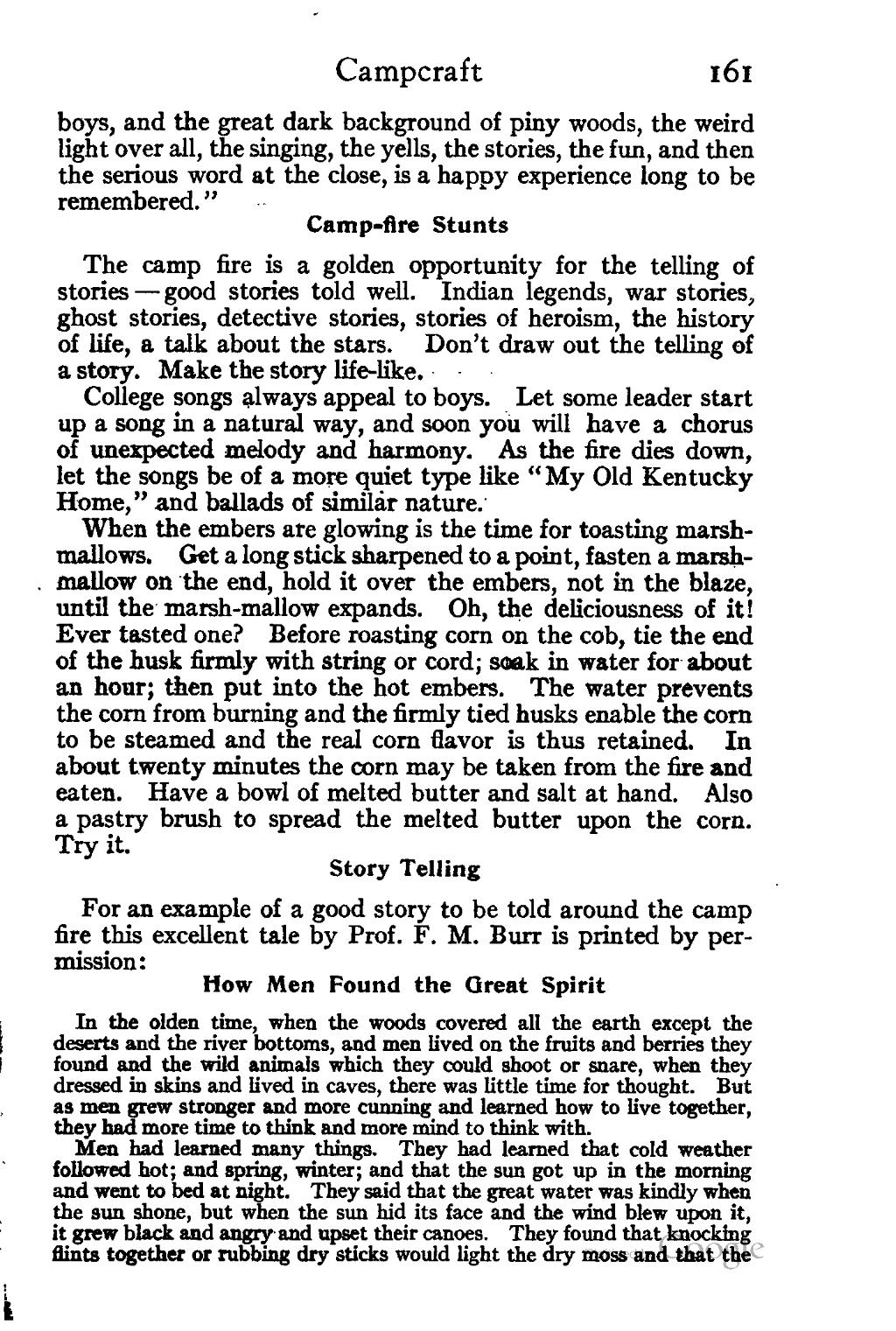Campcraft I6I boys, and the great dark background of piny woods, the weird light over all, the singing, the yells, the stories, the ftm, and then the serious word at the close, is a happy experience long to be remembered." .? Camp-fire Stunts The camp fire is a golden opportunity for the telling of stories- good stories told well. Indian legends, war stories, ghost stories, detective stories, stories of heroism, the history of life, a talk about the stars. Don't draw out the telling of a story. Make the story life-h?e. - College songs always appeal to boys. Let some leader start up a song in a natural way, and soon you will have a chorus of unexpected melody and harmony. As the fire dies down, let the songs be of a more quiet type like "My Old Kentucky Home," and ballads of similar nature.' When the embers are glowing is the time for toasting marsh- mallows. Get a long stick sharpened to a point, fasten a marsh- mallow on 'the end, hold it over the embers, not in the blaze, until the' marsh-mallow expands. Oh, the deliciousness of it! Ever tasted one? Before roasting corn on the cob, t/e the end of the husk firmly with string or cord; saak in water for-about an hour; then put into the hot embers. The water prevents the corn from burning and the firmly t/ed husks enable the corn to be steamed and the real corn flavor is thus retained. In about twenty minutes the corn may be taken from the fire and eaten. Have a bowl of melted butter and salt at hand. Also a pastry brush to spread the melted butter upon the corn. Try it. Story Telling For an example of a good story to be told around the camp fire this excellent tale by Prof. F. M. Burr is printed by per- minion: How Men Found the (treat Spirit In the olden time, when the woods covered all the earth except the deserts and the river bottoms, and men lived on the fruits and berries they found and the wild animals which they could shoot or mare, when they dressed in skins and lived in caves, there was little time for thought. But as men grew stronger and more cunning and learned how to live together, they had more time to think and more mind to thing with. Men had learned many things. They had learned that cold weather followed hot; and spring, winter; and that the sun got up in the morning and went to bed at night. They said that the great water was kindly when the sun shone, but when the sun hid its face and the wind blew upon it, it grew black and angry. and upset their canoes. They found that?nocktng /lints together or robbing dry sticks would light the dry ?0s?clm?!-sl?C
Stránka:roll 1911.djvu/182
Z thewoodcraft.org
Tato stránka nebyla zkontrolována
